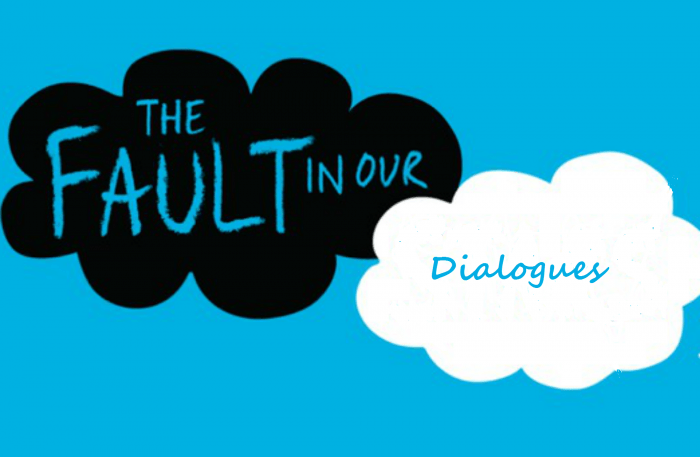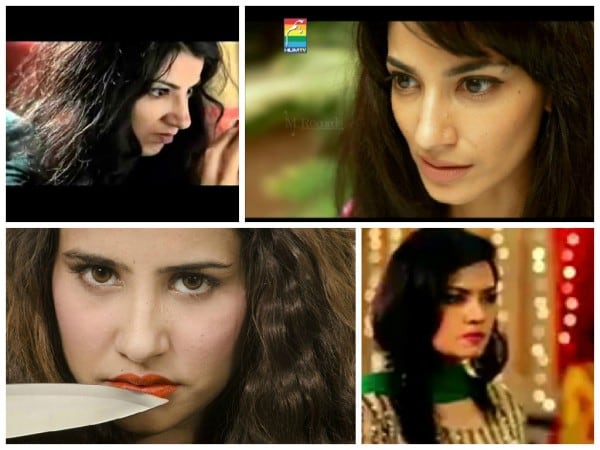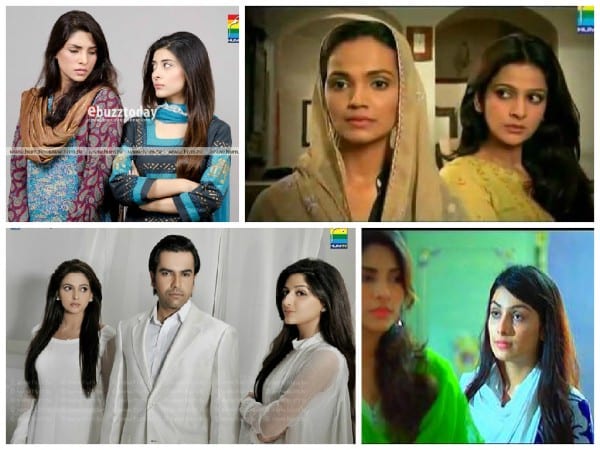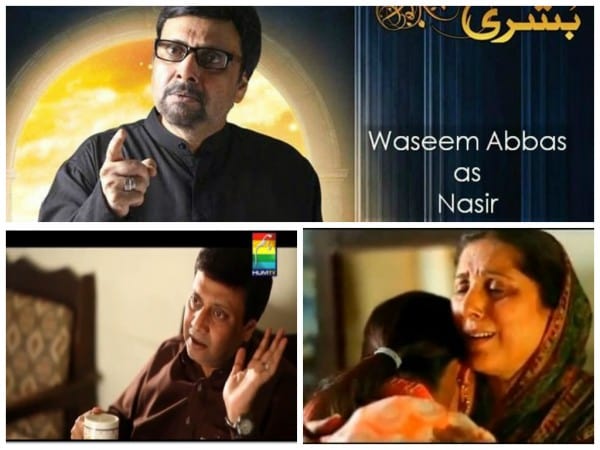We, simply being viewers, can’t help but notice that there some fixed, ghissay pittay dialogues to suit some particular situations in our plays. And no matter how lame or difficult to relate to these dialogues are, you are bound to come across them in many different plays.
So here are some of the most oft-repeated dialogues that I find very stupid;
• ”________________ (fill the blank with the hero’s name) sirf mera hai!”
Anddd this obsession-with-the-guy-who-couldn’t-care-less-about-you is getting has to come to an end! Alright, here’s a girl and she has this super-cute cousin/childhood friend and well, you don’t have to be a genius to figure out that she is in love! It turns out that the guy has eyes for someone else and it’s frustrating that this is the 21st century where there are 101 ways to make your life worth living but this over desperate and deranged girl dedicates the rest of her life to ruining the life of the poor soul whose phooti qismat lies in the fact that that she happens to be the love interest of this male cousin. I think this trend started from Humsafar and I guess the success of Humsafar served as an inspiration.
Many a time the guy doesn’t even give a wrong signal but it’s actually saddening to see educated and confident young girls stooping low to ‘win’ these guys who aren’t worth fighting for! I don’t mean to sound insensitive but if a guy doesn’t like you so what? It’s not exactly the end of the world. Please girls, get a life!!
Coming to this dialogue, it’s not Samsung Galaxy that you’re claiming it to be yours; we are talking about a guy who is alive and kicking and he has his own free will so tell me WHY would you want to spend your life with a guy who is just not that into you??
• ”Bus, uss larki nay humaray larkay ko apnay jaal mein phasalia!”
UFF This dialogue just drives me crazy because I don’t get why are writers (most of them happen to be women too) are hell-bent on showing that only the ‘woman’ in question is solely responsible for ‘phansing’ the man because apparently, this oh so innocent man lacks the ability to tell right from wrong! How is it so easy for him to be swayed by this woman’s charm? Was this guy, by any chance, a preschooler? Was he drugged? Was he mentally unstable? Did this girl point a gun at him? No, No, and No again! Then, tell me how come it’s only the woman who must be blamed?
• ”Mein bohatttt khush hoon. Sab mera bohatt khayal rakhtay hain!” (Reply to ‘Beta, tum khush tou hona?)
And our heroines always end up with shark-like in-laws so when our newly married heroine pays her family a visit, it’s only natural that her face screams, ‘I am DEPRESSED, SUPPRESSED, OPPRESSED’. Her parents greet her with this, ‘innocent’, lingering question,’’beta, tum khush tou hona?’’ The most frustrating part is that our too-good-to-be-true heroine (even though she’s surrounded by psychopathic in-laws who emotionally, mentally, physically abuse her) simply hides her worries by saying, ‘’mein bohatt khush hoon aur sab mera bohatt khayal rakhtay hain’’ (I may look sullen but who cares? Now that you guys mention it, I am actually jumping with joy!) And lo and behold! Her parents, quite conveniently, accept her lies without further question because even though it’s obvious that their daughter’s smile is forced, it’s perfectly okay- these ‘parents’ can’t tell a false/forced smile from a genuine one!
• ”Aray rehnay dain ammi, woh dil ki buri nahe hai, bus zara bewaqoof/nasamjh hai.”
Let’s just say that our writers really need to figure out the difference between people who are ‘pious’ and those who are ‘dimwitted’! In every sister-rivalry play, the evil sis/cousin is defended by her pious sister because apparently, if you’re rude, akharbaaz and materialistic beyond belief, just chill because you are not bad at heart- you are simply immature! The holier than thou heroine (she is the actual bewaqoof here) trusts her sister blindly and the day her sister dearest snatches her fiancé/husband, it FINALLY dawns on her: nahe yaar, my sister was waqai dil ki buri! *weeps*
• ”Aray bechari sharma gayi!”
Here’s the thing: our heroine is in love with someone else so whenever some other suitors are mentioned in front of the girl, she leaves the room in disgust and you don’t have to be a psychic to figure out from her expressions that sharmana isn’t even a part of it because she is simply NOT happy with the proposal but as intelligent as her parents are, they feel kay like any mashriqi girl, un ki beti sharma gayi!
But yes, this dialogue is used in different contexts in different plays so I find it stupid only when the ones saying it actually mean it even when it’s obvious that the heroine walked out in anger.
• ”Tumharay paas sochnay kay liye kal tak ka time hai!”
I think we all have seen demanding, dictator-like parents BUT when it comes to agreeing to a proposal, even the very strict parents give their children ample of time to think things through before saying ‘yes’ to a proposal but in our plays, this 24-hour ultimatum is issued by the parents to the protagonist to say ‘yes’ to a proposal OR to prepare yourself to be disowned! Oh and this proposal in question is mostly put forward by the protagonist’s khala/mamu/chacha/phupo so this explains why the parents are so desperate. I for one feel that such dialogues present an exaggerated and over-strict image of Pakistani parents in general and I would love to see some open minded, 21st century kay parents, please!
• ”Tum nay dia hi kia hai mujhe, siwaye ______ betion kay?”(fill the blank with the number of betiyaan; they may be as many as 7).
A gender-discrimination play without this dialogue? NO WAY! I have lost count of all the gender-discrimination plays I have watched, I have lost count of all the times I came across this dialogue AND I have lost count of the number of times I have seen Waseem Abbas delivering these dialogues. As much as the issue of gender discrimination persists in our society, I think our writers should give this topic a rest for a while- the reason being that this topic has been done to death because of which our writers have somehow lost the art to present this theme in a creative way, under a different light. There are some fixed dialogues and these dialogues are repeated over and over again and that’s exactly why I tend to avoid such plays. Haan, Main Bushra was an exception because the dialogues were penned amazingly well.
What do you think of the list? If you have some dialogues in your mind, please share your thoughts with us!
Maryam Mehdi



